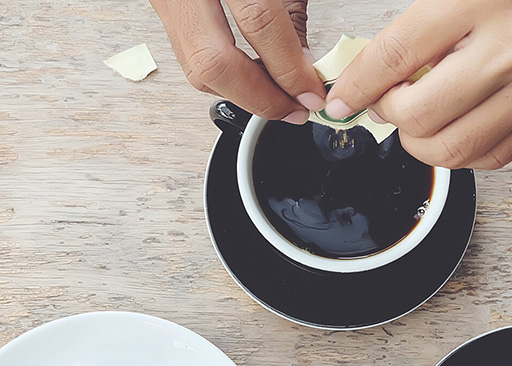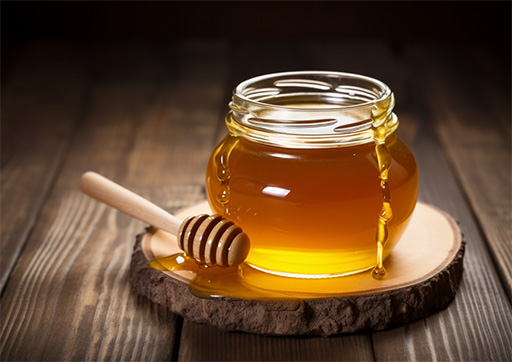Are Artificial Sweeteners Bad For Your Health?

Sugar is grown in fields and processed to produce the white and brown sugar we use every day. Artificial sweeteners are typically created through a controlled process involving chemicals, machinery, and even bacteria.
What Are Artificial Sweeteners?
Sometimes promoted as an option for the health-conscious, a substantial refining process must occur for the artificial sweetener to be made. These synthetic products are derived from sugar and herbs and can be used in many ways.
Uses For Artificial Sweeteners
There are so many products today that use artificial sweeteners. For example, some of your favorite soft drinks and other beverages will use a sugar substitute instead of regular sugar. You can find them in candy, baked goods, canned foods, dairy, jams, jellies, and your favorite soda pop.
Specific recipes may allow for this type of substitution if you do a lot of baking or a nominal amount of cooking. You will often know that you have consumed a product with an artificial sweetener due to the distinct aftertaste.
Any Health Benefits?
Are artificial sweeteners bad for you, or are there any benefits? There are two primary reasons people choose to use artificial sweeteners over regular sugar. For those trying to counter weight gain, artificial sweeteners will not reduce calories.
For example, you can absorb 16 cal from a single teaspoon of sugar. A single can of soda pop can have as much as 160 cal, all because of its required sugar. Therefore, these artificial sweeteners are often used when you are trying to reduce intake, but you do not want to augment your diet significantly.
The other reason you may want to use artificial sugar is that you have diabetes. These are not carbohydrate-based, which may help you maintain proper blood levels.

Sugar Derived From Alcohol
These artificial sweeteners are essentially carbohydrates. They are made from molecules of sugar that have been modified. Many use sugar alcohol as a sweetener. Some of these are extracted from different vegetables and fruits.
These are often used because of how well they mimic the taste of sugar yet will not raise your blood sugar levels. It can also be used in things like your toothpaste as well.
What About Natural Sweeteners?
Since sugar itself is a carbohydrate, it will undoubtedly increase the probability of storing more body fat through consumption. Some consider such sweeteners to be detrimental to the body, so artificial sweeteners are regarded as an alternative. Therefore, using artificial sweeteners could be better depending on your primary objectives.
Moderation Is The Key
This advice applies to virtually anything that you do. Consuming excess of any sugar can be detrimental to your body. However, if you consume a healthy diet with moderate amounts of natural or artificially derived sugar, your potential of developing health issues be minimal.
All forms of sugar can pose specific problems, including honey, which produces a botulism toxin. When moderated, you will not have any issues when consuming regular sugar. Are artificial sweeteners bad for you because of how they are made?
How Are Artificial Sugars Made?
The most well-known artificial sweetener used today is called sucralose. It is a chlorinated sugar, and when measured against sugar grown naturally, it is hundreds of times sweeter. It derives through a chemical process that involves the use of chlorine atoms. These atoms are put in place of what are called hydroxyl groups.
If you enjoy chewing gum, frozen desserts, and many sugary beverages, you have likely had this at one time or another. One of the reasons it is so popular, at least from a production perspective, is that it is stable when exposed to heat. That is why it is often used in fried goods.
Side Effects
Whether you talk about the benefits or their flavor, they tend to be well received. Artificial sweeteners, however, do come with specific side effects. It depends on the person and the conditions they may already have.
Many people have reported experiencing depression, migraine headaches, and even increased appetite when consuming artificial sweeteners regularly. There is also the potential of increased diabetes risk and gut issues.
One of the most common problems with artificial sweeteners is how they can upset your stomach and digestive system. It is because of how they can affect gut microbiome bacteria.
Alternatives To Artificial Sweeteners

Keep in mind that the flavor of these alternatives will be very different from what you would expect from standard sugar. In the same way that brown sugar and white sugar are often not interchangeable, you may experience the same effect using these alternatives to sugar.
So, are artificial sweeteners bad for you? Like any other food product you consume, doing so in moderation is the key to being safe. Artificial sugars might be used by those who must avoid sugar because they have diabetes or want to lose weight. The final product itself will mimic the taste of sugar yet can be devoid of the problems sugar may cause.
BioScan Testing
BioScan Technology reveals many vital areas to improve health. It utilizes its collection of substance frequencies to test the body’s reaction to certain elements, including both natural and artificial sweeteners. The entire session can be completed in as little as 10 minutes, and you can use the insights to set your patients on the path of wellness.
